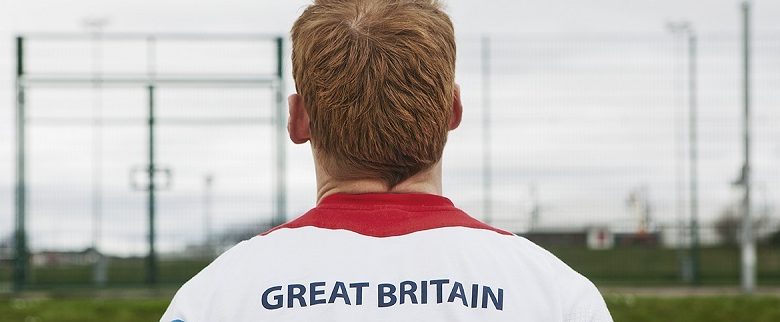
We speak to six-time Paralympic champion Stephen Miller
Stephen Miller has been a Paralympian for 23 years and acts as a celebrity captain for the Superhero Series this weekend. He’s also founded the charity SMILE Through Sport to inspire disabled people of all ages to take part in sport.
Our deputy editor Karen went to find out what keeps this successful Paralympian going, what role cerebral palsy has played in his life and career, and what plans he has for the future? Read on and find out.
“Love for the sport, a competitive streak, a good team, and support from family keep me going.”
Can you tell Disability Horizons readers a bit about who you are and your background?
I am a six-time Paralympian, born and raised in Newcastle, UK. I have had cerebral palsy from birth and I have always been a massive Newcastle United fan.
I compete in seated throws. I was most successful in the F32 Club Throw event in which I won three Paralympic Gold Medals and held the World Record from 1997-2008.
As a Paralympian, you throw clubs and discus. Can you tell a bit more about the rules of the game?
As a seated thrower, the main and most important rule is that you have to throw sitting down without lifting your backside off the seat. When I first started, I threw from my wheelchair and my dad would hold the chair down.
I then got my own custom-made throwing frame, which was tied to the ground with straps. Nowadays, all seated throwers use straps to tie themselves to the seat so they cannot lift themselves from the chair.
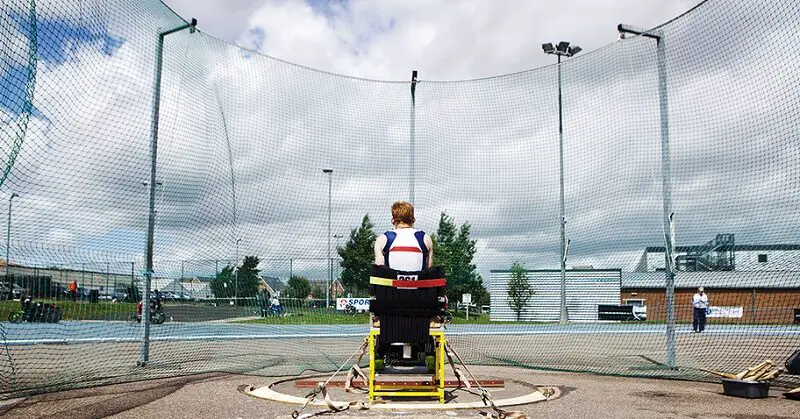
You have had an impressive career as a Paralympian. How did it all start?
Like most children, I was introduced to the sport at school. I went to a ‘special’ school called Percy Hedley until I switched to a mainstream school at the age of 9.
During my time at Percy Hedley and afterwards, l attended a weekly sports club at Percy Hedley. I had a go at many different sports and, eventually, found a sport I was good at and really enjoyed: throwing. I specifically liked Club Throw, Discus and Shot Put.
I also found my first coach at Percy Hedley sports club – Norman Burns, a retired Paralympian. Norman coached me until I was selected for the UK national team at age 14. Then Norman handed me on to national coach Ray Knight.
How are you involved with the Superhero Series and how did it come about?
The Superhero Series is an amazing sporting event for anybody – disabled or not – to take part in any way they like dressed up as superheroes. In the summer – running this weekend on Saturday 17 August – there is a triathlon called Superhero Tri. You can swim, run, push or cycle.
In the winter the theme is Winter Wonder Wheels (1st of December 2019). At that event, you can run, push or cycle. The Superhero Series take place at Dorney Lake in Windsor.
I got involved because I know the Superhero Series organiser and founder, Sophia Warner, really well. We’ve competed together for many years.
She asked if I would get involved with the Superhero Series as a celebrity captain. So far, I have taken part in three events on my tricycle. I loved it every time.
The atmosphere is buzzing, everyone is very motivated to participate. I think everyone goes home feeling like a superhero.
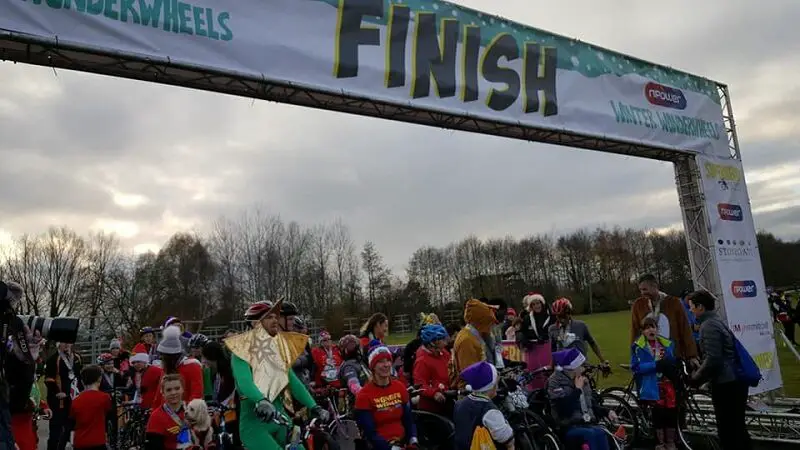
What is the role of superheroes in your life and career?
I have had many people in my life who I have regarded as superheroes. To me, a superhero is anyone who goes above and beyond what is normal to help or inspire others. My parents are massive superheroes in my eyes. I would not have achieved what I have without them.
I find the things that inspire us the most come from ordinary people doing extraordinary things. If we can relate to other people’s success then it can give us the belief that we can have our own success. That is the power of superheroes, whether real or fictional.
How have your family and friends affected or been part of your sporting career and life?
My family have always been a part of my every success and failure, we are a team. My parents and brother have been to all my major competitions. My mam has been my full-time coach since 2008. Rachel my wife is a rock in my life.
We have always done everything as a family. So, when my dad passed away from cancer in 2008 it was tough. But I take great pride knowing that the last time he watched me compete I was winning Silver at the Beijing Paralympics in 2008. It was possibly the best performance of my career.
When success is shared it means more when failure is shared it is easier to cope with.
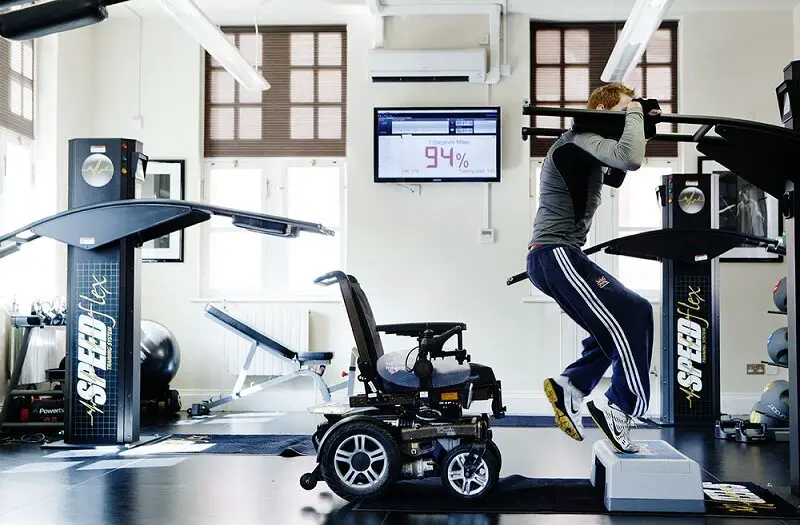
What keeps you going as an athlete and Paralympian?
I have been an athlete for 23 years, so I guess I am just a really stubborn person. The thing that keeps me going is that I love doing the sport. I love training and trying to get better. I love to compete.
Nothing gives you the buzz or the thrill of competing in big sports events. Nothing compares to the experience of being involved in a Paralympics.
I plan to keep going as long as my body and mind are able and willing. I have a great support team consisting of a physiotherapist, massage therapist, chiropractor, psychologist and supplement supplier. They all help to keep me fit and motivated.
What difficulties have you encountered as an athlete with Cerebral Palsy and how have you dealt with them?
The challenges I face are largely the same as those faced by any other athlete. I guess the main difficulty with being a seated thrower was getting a throwing frame made.
But even once that and any other equipment you need is sorted, you also need a car big enough to transport it to competitions and training.
Finding accessible facilities can also be a challenge. But accessibility is getting better – athletics tracks now have to have tie-downs for seated throwers.
I actually try to use my Cerebral Palsy as an advantage when it comes to training.
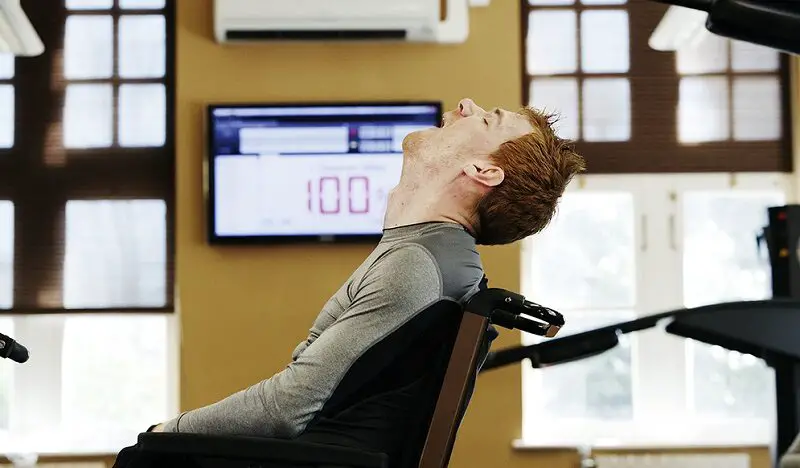
Cerebral Palsy makes me naturally strong and it helps me burn lots of energy. Much of my training is based on movement-pattern development and flexibility so that I can use my Cerebral Palsy in a positive way.
My condition is, I think, a barrier most when it comes to getting sponsors, agents, radio and TV interviews. Cerebral Palsy coupled with a strong Geordie accent affect my speech. Building a profile and projecting a positive and likeable personality has helped to overcome some of these barriers.
How have you found being a famous Paralympian and has that changed you as a person?
I was very young when I became a Paralympic champion at just 16. At the time there was not much media recognition. That was when I had my most successful years (so far), so I do not think it changed me much. But it did make me realise how much I love to compete and to win.
I probably got the most general recognition for being a Paralympian at London 2012, where I was the Athletics Male Team Captain. It is quite ironic because that was my worst performance at a Paralympics.
I have always said that my motivation is not linked to money, fame or recognition. I do sport because I love it. The rewards that come from my sporting success are a great bonus.
I still get a bit shocked and humbled when people recognise me and stop me in the street – I do not see myself as a celebrity. I guess becoming a successful Paralympian has made me appreciate even more how sport can influence people in a positive way.
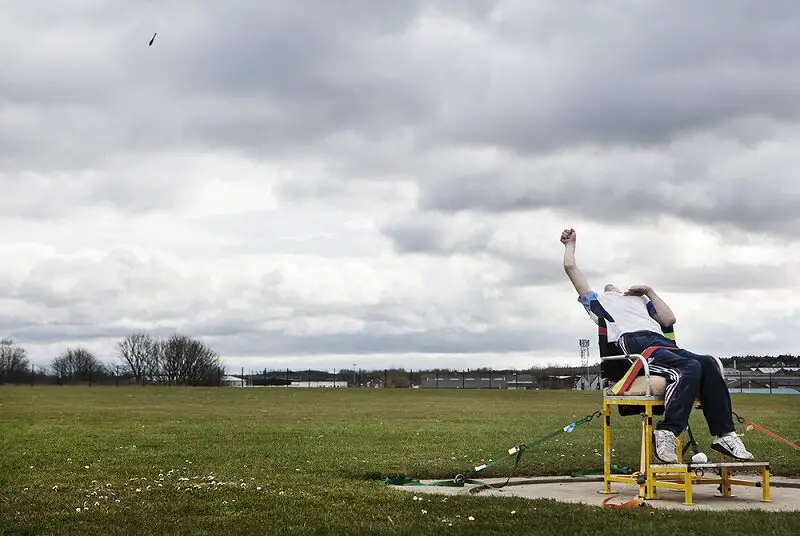
Has your success affected how non-disabled people treat you? If so, in what way?
I have always fought to be portrayed and treated as an athlete first and foremost. There is the stereotypical view that disability sport is not very competitive and that Paralympic medals are easy to come by. These views are likely to be held by people ignorant of disability sports.
It is not as bad now as it used to be, but there is still a long way to go before disabled sport is on an even footing with the non-disabled sport. I have always tried to use my success to get people to better understand what I do and to see how hard I work to be able to compete on a Paralympic level.
I think people respect what they understand. Educating people about the Paralympics is key to gaining respect. It certainly helped with the way people view my success.
What are your other interests and passions outside of sport?
I support Newcastle United and helped to set up the Newcastle United Disabled Supporters Association (NUDSA) in 1998. I am now the secretary of the charity.
In 2013 I founded a non-profit organisation called SMILE Through Sport with my wife Rachel. We work with all ages and abilities of disabled people. We run sports sessions, taster sessions and clubs. Via SMILE Through Sport, I also speak at schools, organisations and events about the benefits of sport. We also provide disability awareness services.
I helped to set up SMILE because sport has given me so much and been such a positive influence on my life. I want others to have the opportunity to take part in sport.
My other passion is writing. I wrote an autobiography titled Paralympian that was published in 2008 and I am planning to write a follow-up book. I also like to write poetry.
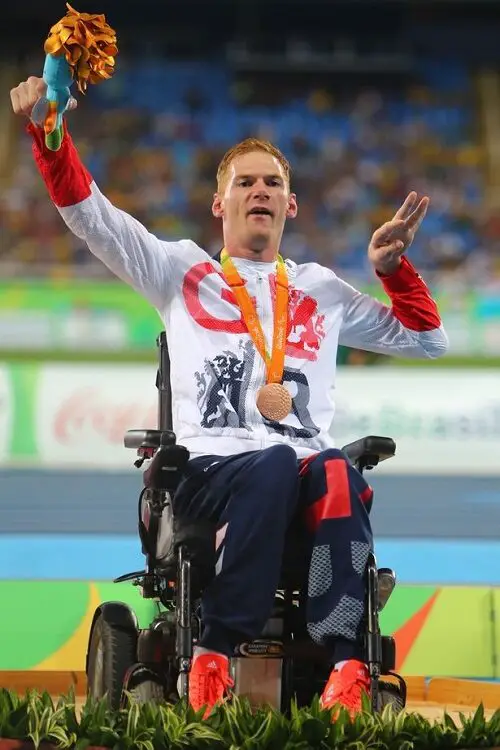 Have you reached all your goals or are there still some dreams you want to pursue – personal or professional?
Have you reached all your goals or are there still some dreams you want to pursue – personal or professional?
I am goal orientated, it is how I am built. Right now my focus is on the World Championships this November in Dubai and the Tokyo Paralympics in 2020. It will be my 7th Paralympics and could be my last. I want to give it my best shot.
Outside of sport, I want to continue to develop SMILE and being a public speaker, and to develop the skills I need for my future career, whatever that may be.
You are also a motivational speaker. Would you like to share some final thoughts with Disability Horizons readers?
Put the past behind you, the future is where the potential lies.
Stephen Miller interviewed by Karen Mogendorff
Images by Dan Prince.
To find out more about Stephen Miller, you can visit his website and follow Stephen Miller on Twitter.
More on Disability Horizons…
- Why wheelchair fencing could be the sport for you
- Accessible adventures – no matter what your disability
- Para-athletics: from becoming a para-athlete to facing its challenges